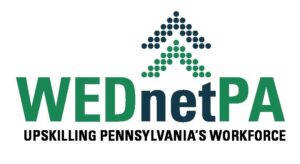Lean Champion Level Two Certification
This certification is a powerful second step for individuals looking to fortify and lead their organization’s Lean Journey.
Continuing the theme of a team-based approach to organizational opportunities, participants will further develop their skill sets to lead sustainable change within their organization. Our distinct “learn and do” approach is proven to develop Lean leaders that can manage, measure and lead their organization’s Lean transformation.
The four stages of the program: Establish the Direction, Deployment & Execution, Leadership Skills Development, Continuing the Journey – are designed to arm Change Agents with the ability to:
- Establish the organization’s Continuous Improvement Direction
- Develop the Leadership Skills necessary in the Lean Journey
- Apply improvement across the Business Enterprise
- Develop the necessary methods to Manage Daily Improvements
Learning activities of this program include:
- One-on-one interaction and guidance from a Lean Master Instructor
- A developed Continuous Improvement Strategy and Deployment Plan for a project
- One-on-one strategy and Project Coaching session
Session 1 – Leadership in a Continuous Improvement Organization & Tying Financials to the Journey – September 11
Learn why leadership is so important when an organization deploys their CI journey and learn the leadership challenges in today’s workplace. This day discusses the key skills and required behaviors needed when deploying an important strategy. Participants will learn the different styles of leadership and their own leadership style. Participants will learn the importance of business financials and CI efforts.
Session 2 – Strategy Development and Deployment & Key Performance Indicators – September 25
To engage an organization’s most important asset—their people—into their CI journey, an organization must provide direction. Participants will learn how to align departmental improvement initiatives that are aligned to the overall organizational goals and objectives. As the initiatives are developed, participants will learn how to establish key performance indicators that will help measure their improvement efforts.
Session 3 – Project Coaching Day – October 8
Each participant is required to lead a CI initiative within their organization. On this day, each participant shares their project with the group. Participants must demonstrate how their project is aligned to a challenge and how the project will be measured. Participants receive constructive feedback on their project.
Session 4 – Continuous Improvement Across the Enterprise and Mistake Proofing – October 23
CI efforts have dominated the production / manufacturing areas of many organizations. Great improvements have been made; however, deployment solely focused upon the production side of the business is not enough. CI must be deployed across the business enterprise. Participants will learn and see how these efforts are deployed in non-production areas, such as Human Resources, Sales, Engineering, etc. The Mistake Proofing Objectives include: Understanding importance of human errors in causing defects, relate mistake-proofing and inspection, understand appropriate uses and limitations of mistake proofing, incorporate basic mistake-proofing in production and office processes and developing ideas to decrease human error in the process.
Session 5 – Pull Kanban & TWI Job Method and Job Instruction – November 12
In this session, participants will understand why to use a Pull/Kanban System, the different types of Kanbans and how to and where to use a Kanban. Participants will also understand the purpose of job methods is to promote with supervisors the Importance to continuously improve the way jobs are being done as well as the purpose of job instruction is to promote with supervisors how to quickly train employees to do a job correctly, safely and conscientiously.
Session 6 – Emotional Intelligence & Failure Mode Evaluation Analysis (FMEA) – December 11
Emotional Intelligence (EI) has been identified as an important part of an individual’s ability to successfully cope with demands. Because of the constantly changing environments in which we live, individuals often require more than just task competencies or technical know-how to be successful. Participants will measure their level of EI and identify their strengths as well as opportunities for improvement. As Continuous Improvement Leaders, the ability to facilitate a group through decision making and other improvements requires special methods which allow the facilitator to provide leadership without taking control. Participants learn what facilitation is, decision making options, creating participation, managing group conflict and how to effectively manage meetings.
Session 7 – Lean Daily Management System – January 15
As CI leaders, the ability to facilitate a group through decision making and other improvements requires special methods, which allow the facilitator to provide leadership without taking control. Participants learn what facilitation is, decision making options, creating participation, managing group conflict and how to effectively manage meetings. The program concludes with participants learning the basics of building a daily management system that helps organizations create a culture of CI.
Session 8 – Project Presentation & Graduation – January 29
IMC’s Lean Manufacturing Level One (or an equivalent approved by the instructor) is a required pre-requisite to the Champion program.
Taught by Lean Master Jeff Kopenitz
A light breakfast and lunch will be provided. This training qualifies for WEDnetPA funding as Essential Skills Training.
 Alexandre Leclerc, Co-founder and CEO, Poka
Alexandre Leclerc, Co-founder and CEO, Poka Travis Hessman, Content Director and Editor in Chief, IndustryWeek
Travis Hessman, Content Director and Editor in Chief, IndustryWeek


